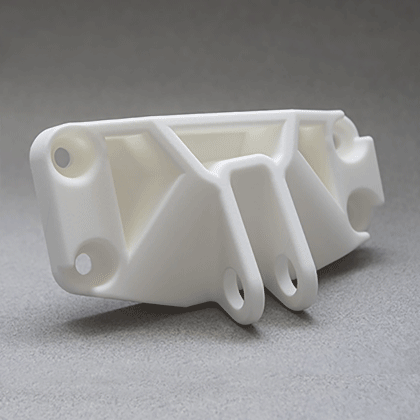In the ever-evolving landscape of the manufacturing industry, staying ahead of the curve is crucial. One of the most innovative advancements in recent years is the adoption of Selective Laser Sintering (SLS) prototyping services. This technology offers a myriad of advantages that can significantly enhance the efficiency and effectiveness of manufacturing processes. In this blog post, we will delve into the benefits of using SLS prototyping services in the manufacturing industry, providing a comprehensive understanding of why this technology is becoming indispensable.

Accelerated Product Development
One of the primary benefits of using SLS prototyping services in the manufacturing industry is the acceleration of product development cycles. Traditional prototyping methods can be time-consuming, often requiring multiple iterations and extensive manual labor. SLS technology, however, allows for rapid production of prototypes directly from digital designs. This means that manufacturers can quickly test and refine their products, significantly reducing the time from concept to market.
For example, a company developing a new consumer electronic device can use SLS prototyping to create functional prototypes in a matter of days, rather than weeks. This rapid turnaround enables faster feedback and iteration, ultimately leading to a more refined final product.
Cost-Effective Prototyping
Another significant advantage of SLS prototyping services is cost-effectiveness. Traditional prototyping methods often involve expensive tooling and molds, which can be a substantial financial burden, especially for small and medium-sized enterprises. SLS technology eliminates the need for these costly tools, as it builds prototypes layer by layer using powdered materials.
This reduction in tooling costs makes SLS prototyping an attractive option for manufacturers looking to minimize expenses without compromising on quality. Additionally, the ability to produce complex geometries without additional costs further enhances the economic viability of SLS prototyping.
Design Flexibility and Complexity
The benefits of using SLS prototyping services in the manufacturing industry extend to the realm of design flexibility and complexity. Traditional manufacturing methods often impose limitations on the shapes and structures that can be produced. SLS technology, on the other hand, allows for the creation of intricate and complex designs that would be impossible or prohibitively expensive to achieve with conventional techniques.
For instance, aerospace manufacturers can leverage SLS prototyping to produce lightweight, high-strength components with intricate internal structures. This level of design freedom opens up new possibilities for innovation and optimization, enabling manufacturers to push the boundaries of what is possible.
Material Versatility
SLS prototyping services offer a wide range of material options, making it a versatile solution for various applications. From durable plastics to high-performance metals, SLS technology can accommodate different material requirements, ensuring that prototypes meet the specific needs of the intended application.
For example, automotive manufacturers can use SLS prototyping to create functional prototypes of engine components using heat-resistant materials. This versatility allows manufacturers to test and validate their designs under real-world conditions, ensuring that the final product performs as expected.
Reduced Waste and Sustainability
In today's environmentally conscious world, sustainability is a key consideration for manufacturers. SLS prototyping services contribute to sustainability by reducing material waste. Traditional subtractive manufacturing methods often result in significant material wastage, as excess material is removed to achieve the desired shape. SLS technology, however, is an additive process, meaning that material is only used where it is needed.
This reduction in waste not only lowers material costs but also minimizes the environmental impact of manufacturing processes. By adopting SLS prototyping, manufacturers can align their operations with sustainable practices, contributing to a greener future.
In conclusion, the benefits of using SLS prototyping services in the manufacturing industry are manifold. From accelerated product development and cost-effective prototyping to design flexibility, material versatility, and sustainability, SLS technology offers a compelling solution for modern manufacturers. By embracing this innovative approach, companies can enhance their competitive edge and drive forward the next generation of manufacturing excellence.








